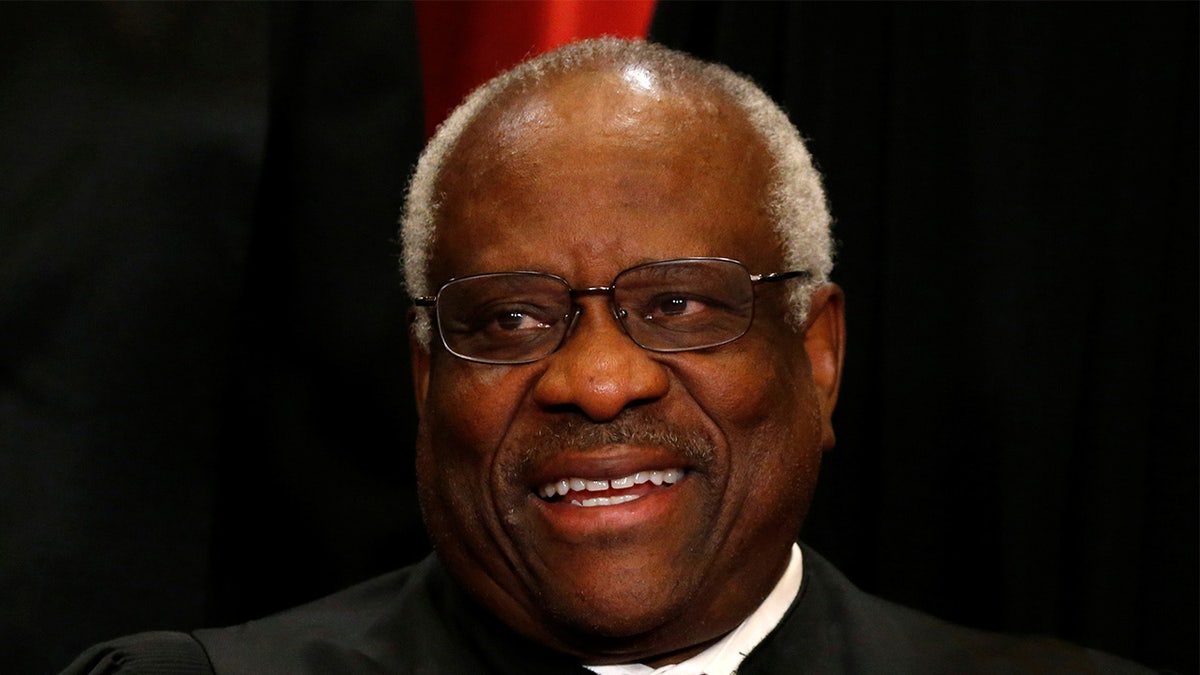Supreme Court rules against Trump administration bid to end DACA program
The Supreme Court rules against the Trump administration’s effort to end the Obama-era program that offers protections to young immigrants brought to the country illegally as children; Judge Andrew Napolitano weighs in.
Supreme Court Justice Clarence Thomas, in an opinion objecting to the court's Thursday decision blocking President Trump's effort to end an Obama-era program that protected those who illegally arrived in the U.S. as children, criticized his fellow justices for avoiding a "politically controversial" decision and showing "timidity" in not striking down the policy.
Thomas was joined in his partial dissent by Justice Samuel Alito and Justice Neil Gorsuch in what was a 5-4 decision. Justice Brett Kavanaugh wrote his own partial dissent.
"Today’s decision must be recognized for what it is: an effort to avoid a politically controversial but legally correct decision," Thomas wrote. "The Court could have made clear that the solution respondents seek must come from the Legislative Branch. Instead, the majority has decided to prolong [the Department of Homeland Security's (DHS)] initial overreach by providing a stopgap measure of its own."

U.S. Supreme Court Justice Clarence Thomas participates in taking a new family photo with his fellow justices at the Supreme Court building in Washington, D.C., U.S., June 1, 2017. REUTERS/Jonathan Ernst - RC15CF6608B0
He added: "In doing so, it has given the green light for future political battles to be fought in this Court rather than where they rightfully belong—the political branches. Such timidity forsakes the Court’s duty to apply the law according to neutral principles, and the ripple effects of the majority’s error will be felt throughout our system of self-government."
Thomas' main objection to the majority of the court, which voted to uphold the Deferred Action on Childhood Arrivals program, also called DACA, in the face of Trump efforts to roll it back, was that the Obama administration did not go through the proper channels in the first place. Thomas said because of that, Trump should have been able to dismantle the program without justification.
The majority, led by Chief Justice John Roberts, ruled that the reasoning the Trump administration used for rolling back the program was "arbitrary and capricious."
Thomas disagreed, slamming the creation of the program under the Obama administration, noting that the executive branch was not given the authority from Congress to essentially change the law, as DACA, in effect, did.
"Without any purported delegation of authority from Congress and without undertaking a rulemaking, DHS unilaterally created a program known as Deferred Action for Childhood Arrivals (DACA)," he wrote, adding later that the program was implemented "without statutory authority and without following the [Administrative Procedures Act's] required procedures."
The Administrative Procedures Act (APA), sets up standards for executive-branch rulemaking that need to be followed when Congress is not involved in policy changes by passing laws. Thomas said that because those procedures were not followed, the Trump administration was correct to attempt to revoke DACA.
SUPREME COURT RULES AGAINST TRUMP ADMINISTRATION BID TO END DACA PROGRAM
"Then-Attorney General Sessions correctly concluded that this ultra vires program should be rescinded. These cases could—and should—have ended with a determination that his legal conclusion was correct," Thomas said. "Without grounding its position in either the APA or precedent, the majority declares that DHS was required to overlook DACA’s obvious legal deficiencies and provide additional policy reasons and justifications before restoring the rule of law."
Thomas also said that even though the reason DHS gave for the rescinding the policy -- that DACA was not done under the proper legal authority -- was more than enough, it wasn't even required to do that.
"Nothing in the APA suggests that DHS was required to spill any ink justifying the rescission of an invalid legislative rule, let alone that it was required to provide policy justifications beyond acknowledging that the program was simply unlawful from the beginning," he said.
The justice said that DACA "fundamentally altered the immigration laws," creating "a new category of aliens who, as a class, became exempt from statutory removal procedures and it gave those aliens temporary lawful presence."
These changes, Thomas said, "contravened statutory limits."
The majority opinion, written by Roberts, was careful to note that Trump can roll back DACA, just not in the way that it did.
“The dispute before the Court is not whether DHS may rescind DACA. All parties agree that it may," the Chief Justice wrote. "The dispute is instead primarily about the procedure the agency followed in doing so.”
CLICK HERE TO GET THE FOX NEWS APP
DACA gives about 700,000 people brought to the United States illegally as children the opportunity to receive a renewable two-year period of deferred action from deportation and become eligible for a work permit.
Hundreds of "Dreamers" -- the beneficiaries of DACA -- and their supporters had rallied outside the court during the November oral arguments. Some carried signs, such as "Build Bridges, Not Walls." Members of Congress were among those watching the arguments inside.
A dozen states led by Texas were among the parties backing the administration in the Supreme Court litigation. A host of civil rights groups filed separate briefs in support, along with several states including New York and California.
Fox News' Ronn Blitzer and Bill Mears contributed to this report.













































